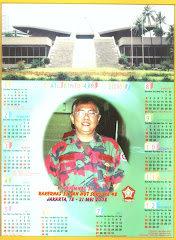Résumés -- Keep It Simple
In our last newsletter, we recommended focusing on highlights on your résumé. To help keep the emphasis on these highlights, we suggest simplicity in your résumé's format. Here are some guidelines to help you:
Select the right paper -- use a good quality paper in white, cream, or gray
Use a simple, reasonably-sized font -- easy to read fonts are Arial and Verdana between 9 and 12 points
Avoid too many embellishments -- sparingly use bold and italics and select simple bullets
Keep it to a page -- if possible, do not exceed a page or your résumé may be overwhelming to read
Remember, your goal is to make your résumé easy to be viewed in a brief amount of time while making the most important points jump out. This minimalist approach will help you achieve this goal.
Résumés -- How to Say It All
With so many things to say in a résumé, how do you make it easy to read? Your structure may depend on what stage you are at in your career (looking for your first job, career change, etc.). Regardless of your status, we suggest dividing the résumé into sections. Here are some key sections to include:
Name and Contact Info - Introduce yourself with your name in bold and your address, email address, phone number, and/or fax number
Objective - briefly describe what you hope to achieve in your new job
Statement of Faith - primarily for ministry positions
Skills - list your skills that are pertinent to the position for which you are applying
Work Experience - list at least your last three positions and outline your main responsibilities for each one
Education History - Give information on schools, dates you attended, what you studied, and if you received any degree/diploma
The language to use on your résumé will be covered in next week's newsletter.
Résumés -- Winning Words
You've started writing your résumé, adding your education, skills, and a list of your previous positions. Now you're stuck on how to describe your responsibilities in each position. We suggest picking 3 or 4 main responsibilities or accomplishments to describe each job. It's helpful to select points that relate to the position for which are applying to show why you're a good fit. Also, make sure to focus on the positive contributions you've made in each position.
Next, use action words and examples to help the employer understand your accomplishments. Make sure, though, that you vary the words you use. Some good words for résumés are:
Managed Developed
Researched Analyzed
Coordinated Implemented
Built Improved
In all of this, the most important thing to remember is to be truthful in the descriptions on your résumé. "Truth stands the test of time; lies are soon exposed." (Proverbs 12:19)
Langganan:
Komentar (Atom)

